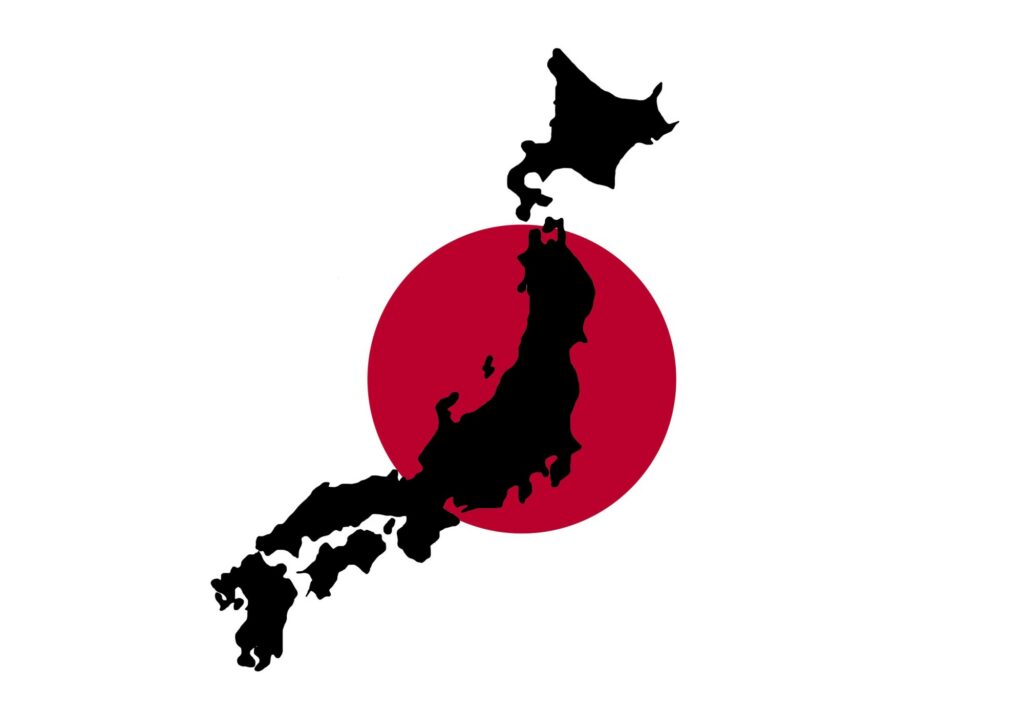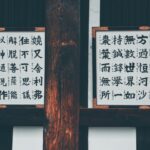
About 128 million people around the world speak Japanese. If you’re visiting Japan and want to communicate with 99% of their population, you’re going to need to join their ranks… or at least learn some essential Japanese phrases.
Here, we’re going to talk about the basics of the Japanese language. Read on to learn some essential language lessons you need to know before you go to Japan.
The Basics of the Japanese Language
Japanese is an interesting language because there are several forms of it. One quirk is that Japanese is heavily gendered. It has a masculine form of speech exclusively for men and a feminine form exclusively for women.
For example, the word for “I” in the feminine form is “atashi.” In masculine Japanese, it is “boku” (for younger men) and “ore” (for men of all ages in extremely informal settings). There also are gender-neutral forms of “I” such as “uchi” or “watashi.”
The latter “watashi” is the one that you will need to know when you visit Japan. It is the formal gender-neutral “I.”
Informal Speech
Most of the differences between these two modes of speech only come out in informal settings. This brings another quirk of the Japanese language to light. There is one method of speaking in informal settings and another in formal settings.
Informal speech is referred to as “futsuu,” which literally translates to “normal” or “regular.” You only use this form of speech with friends and family. In some cases, you will also use it with peers and colleagues.
Polite Speech
As a visitor, though, it is unlikely that you will ever use informal speaking patterns. You will need to learn “teinei” speech, which literally translates to “polite.” This speech model is for when you speak with strangers, hotel/restaurant staff, and (especially) those older than you.
Basically, if the person you’re talking to isn’t someone you’re close with, you’re going to be using polite/formal speech. That’s why all of the phrases we’re going to talk about today are in their formal/polite forms.
Introducing Yourself
Introducing yourself to new people is the first step to getting by in Japan.
Begin with an ohayou gozaimasu if it’s before noon, a konnichiwa if it is between 12-6, or a konbanwa if it is after 6 PM. These translate to “good morning,” “hello/good afternoon,” and “good evening” respectively.
It’s then time to tell the other person your name! The core words you will need to know for a basic introduction are “watashi” (I), “name” (name), and your actual name. Pretty easy, right?
An introductory sentence would be:
Watashi no namae wa (x) desu. This means “my name is (x).” You would, of course, insert your name in the place of (x).
Grammatical Particles and Their Place in Japanese
You’ll note that there are a few other words here: “no,” “wa,” and “desu.” “Desu” is a key grammatical marker in polite speech that denotes the end of a sentence. This is not always true, but it is a basic rule that applies in most cases.
In some cases, the particle “ka” will be added onto a sentence after “desu” to make it a question.
Like “ka,” “no” and “wa” are grammatical particles in Japanese. “No” makes the previous word possessive, meaning that “watashi no” is “my” rather than “I.” “Wa” is a subject marker that denotes that the preceding word is the subject of the sentence.
Particles you should know are:
- Wa → Subject marker (to show that the previous word is the subject)
- Ga → Another subject marker, but one that suggests that everything preceding it is directly related to the word preceding the particle
- Wo → Direct object marker
- No → Makes the preceding word a possessive
- Mo → “too” or “also”
- Ni → Means that something within the sentence has moved toward something else
- De → Similar to “ni” but shows when an action is happening rather than movement
- Kara → “since” or from”
- Made → the ending point of “kara”
- To → “and”
- Ne → An expression of opinion that assumes that the other person would agree, similar to the British “innit”
Luckily, you don’t necessarily need to memorize all of these particles individually. You just need to memorize sentences and repeat them while in Japan. Still, it’s important to know these particles so that you can understand the sentences you’re saying.
More Introductory Phrases
Once you’ve introduced yourself with watashi no namae wa (x) desu, you’ll want to follow up with some more simple phrases.
Yoroshiku onegai shimasu is a good one. It means, “it’s nice to meet you!” You may notice that this sentence does not end with “desu,” but this is common – “masu” is an alternative in some sentences.
You also may want to ask the person their name. In this case, you would say, namae wa nan desu ka?
Nanimeans “what.” Sometimes the -i is dropped when it precedes another word, as is the case in the previous sentence. However, if you don’t hear someone and want them to repeat themselves, simply saying “nani?” will be sufficient.
If you want to ask someone how they are doing, you would then continue with ogenki desu ka?
These basic phrases are important conversation-starters in Japan.
Essential Phrases
Let’s take a look at some other essential phrases that you will need to know when exploring Japan!
- Toire wa doko desu ka? → where is the restroom?
- Ogenki desu → I am well.
- Daijoubu desu ka? → are you okay?
- Daijoubu desu → I am okay.
- Domo arigatou → Thank you very much.
- Arigatou → Thank you.
- Onegai → Please.
- Watashi wa America jin desu → I am an American.
- Watashi wa Igirisu jin desu → I am from Great Britain.
And, of course, you will want to know:
- Eigo ga wakarimasu ka? → Do you speak English?
- Nihongo ga wakarimasen → I don’t speak Japanese.
These will work wonders when you want to have more complex conversations!
Getting around Japan is going to require some directional phrases!
- (x) wa doko desuka? → where is (x)?
- Hoteru wa doko desuka? → where is the hotel?
- Watashi wa doko desuka? → where am I?
- Koko wa doko desuka? → where is this? or, where am I currently?
- Watashi wa mayotte imasu → I am lost.
- Soko wa doko desuka? → where is that (other location)?
Note that “koko” refers to here and “soko” refers to another location. However, this other location can me extremely close by. If you’re in a station, you would use “koko,” but if you can see it across the road you would still use “soko.”
Modes of Transportation
Following directions requires that you know transportation so that you can get around. Common modes of transportation include:
- Kuruma → car
- Aruku → walk
- Jitensha → bicycle
- Shinkansen → bullet train
- Hikouki → airplane
- Fune → ship
- Feri → ferry
If you’re looking for your car, you may ask, watashi no kuruma wa doko desuka? If you’re looking for the Shinkansen station, you may ask shinkansen no eki wa doko desuka?
“Eki” is a station, and if you have a specific station in mind you may ask for that. For example, someone looking for Ueno station may ask, Ueno eki wa doko desuka?
This will make it much easier for you to get around.
Ordering at Restaurants
One of the best things about visiting Japan is trying the delicious cuisine. You will go to a resutoran, or restaurant, and order off a menu. Menu is the same in both English and Japanese, so you’re in luck on that front!
Greet your waiter or waitress like you would any other person.
You can then use “kore” in a sentence when pointing at the menu. Kore wa nan desuka means “what is this?” It’s very useful when ordering unfamiliar food from restaurants.
Supesharu wa nan desuka is how you would ask for specials.
To ask for your food, say (x) wo hitotsu onegai shimasu. This means “may I please have one of (x)?
Have food allergies? Then you will need to know how to communicate this to your waiter.
You would say watashi wa (x) no arerugi ga arimasu – I have an allergy to (x). Kore ni (x) ga arimasu ka is also good to know. It means “is (x) in this?”
Common foods that people have allergies to include:
- piinatsu (peanuts)
- nattsu (nuts/tree nuts)
- tamago (egg)
- sakana (fish)
- shiifuudo (seafood)
- guruten (gluten)
- daizu (soy).
This will make it easy for you to stay safe as you order!
Beyond Basic Japanese Phrases
While learning the entire Japanese language is a daunting task, memorizing and using key Japanese phrases is much easier. Now that you know some basic words and sentences that will help you get by in Japan, it’s time to learn more about the language and culture.
We’re experts on everything related to Japanese culture, so we’re excited to help you get ready for your upcoming trip. Contact us with any questions that you have or to learn phrases that aren’t on this list.
- 12 Things to Do When Visiting Japan - October 7, 2022
- 13 Reasons to Move to Japan - October 7, 2022
- A Guide to Japanese New Year Traditions - October 6, 2022








